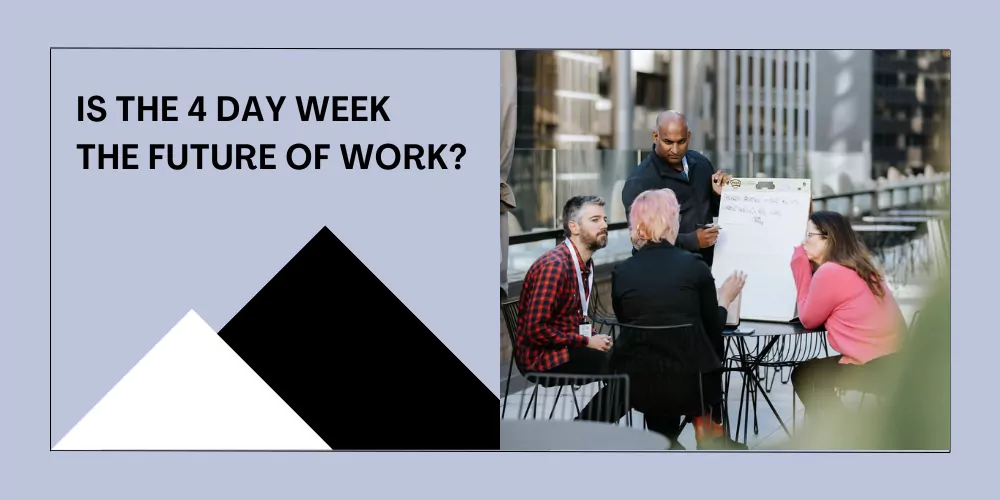Is The 4 Day Week The Future of Work?

Our series A+ founders and CEOs recently squared off in a digital debate on the topic of the four day work week. Split into two teams – the “Four Day Innovators” and the “Five Day Strategists” – the lively conversation was filled with compelling arguments, insightful data, and perspectives on reshaping our work culture.
Special guest Debbie Bailey, Head of Growth at 4 Day Week Global, gave a thought provoking presentation and invited an open forum for the community’s questions, differing opinions and input.
Here, we have outlined some of the key takeaways from the discussion.
Attracting and Retaining Talent: Embracing a four-day work week could be a strategic move to attract top talent in today’s competitive market. It positions a company as innovative and forward-thinking, highlighting a commitment to employee well-being and work-life balance.
Navigating the Challenges: Transitioning to a shorter work week isn’t without its hurdles. It’s vital to consider the impact on part-time staff, ensure fair compensation, and critically assess the potential for increased work intensity, psychosocial risks, and scheduling conflicts with customers.
Proven Benefits and Cautious Optimism: The discussion underscored real-world successes, including increased productivity, reduced burnout, and a better balance between work and personal life. However, it also emphasised the importance of a consultative approach, flexibility in implementation, and continued dialogue to address concerns and evolving needs.
Creative Solutions for Challenges: The session didn’t shy away from the potential drawbacks and challenges. It stressed the importance of creative solutions, like staggered rosters for maintaining 24/7 operations and ensuring that part-time employees don’t feel shortchanged. The discussion also covered how to manage increased work intensity and prevent burnout, suggesting that careful planning and continuous monitoring are essential.
Tailor the Approach: A four-day work week is not a one-size-fits-all solution. The session highlighted the importance of flexibility in implementation and communication. For some, a four-day week might mean longer hours on working days, while for others, it might involve more concentrated work with fewer breaks. The key is to tailor the approach to the needs of the business and the employees, ensuring everyone understands the goals and benefits.
Following the session, attendees were asked to vote for their position on the 4 day work week ideal with 53% of respondents affirmative on the benefits of 4 days and 47% preferring to maintain a traditional 5 day week.
This conversation wasn’t just about contemplating a shorter work week; it was a rethink on our work habits, highlighting the importance of mental health and well-being, and questioning how we can all contribute to a more positive and productive work environment. The session set the stage for ongoing discussions and experiments with flexible work models, encouraging attendees to keep an open mind and consider how these changes could benefit on the employee, employer and organisational level.
Check out our Summit community HERE and get in touch if you’re keen to learn more HERE.
More Innovation Bay content
Join the Innovation Bay community
INNOVATION BAY NEWSletter
Stay up to date
Sign up for monthly updates including exclusive interviews, pitch dates, event announcements, profile, news and much more.
